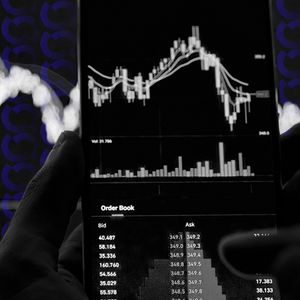Investors are moving out of government bonds and putting that money into corporate debt across the U.S. and Europe. The flow began picking up at the end of last year and hasn’t slowed. In June, $3.9 billion was pulled out of U.S. Treasuries while $10 billion went into high-grade corporate bonds on both continents. By July, another $13 billion was added just to U.S. investment-grade corporate debt—making it the largest monthly buy since 2015, according to Bloomberg. This is no minor reallocation. For decades, U.S. government debt was the most trusted instrument in global markets. But now, rising fiscal deficits and ballooning interest costs are making Treasuries less appealing to institutional investors. Michaël Nizard, who manages portfolios at Edmond de Rothschild Asset Management, began pulling away from sovereign debt late last year. He said he’s kept that position steady ever since. Wall Street sees credit strength while governments pile on debt The U.S. government’s spending problem isn’t new, but the pressure has been increasing. Donald Trump’s tax cut bill, signed during his first term and now continuing to impact revenue during his second presidency, is projected to add about $3.4 trillion to the federal deficit over the next decade. This projection came from the Congressional Budget Office. At the same time, interest costs are climbing. By 2035, debt payments could consume 30% of the country’s revenue. That compares with 18% expected this year and just 9% four years ago. Those numbers contributed to a major downgrade. In May, Moody’s Ratings stripped the U.S. of its last AAA rating, bringing it down to Aa1. The agency specifically cited the growing deficit and the government’s rising interest burden. That rating cut has added to the sense that Treasuries are no longer untouchable. Still, the shift toward corporate debt hasn’t been rapid. The U.S. government doesn’t borrow in foreign currency and has the ability to print dollars. That gives it flexibility that most countries don’t have. Even during the tariff standoff in April, Treasuries performed better than company bonds, even though both markets saw falling prices. Foreign demand also hasn’t dried up—international holdings of Treasuries increased in May. But corporate bonds have started to look more attractive for other reasons. While governments rack up obligations, companies have posted relatively strong earnings. More U.S. firms have beaten Wall Street estimates this earnings season than during the same stretch last year. That’s been enough for major asset managers like BlackRock to favor credit. In a note last week, their team wrote, “Credit has become a clear choice for quality.” Spreads tighten, but demand for company debt holds Valuations for company bonds have been running high, which points to strong demand. U.S. high-grade corporate spreads have stayed below 80 basis points through July. That’s well below the 10-year average of 120 basis points based on Bloomberg index data. In Europe, euro-denominated investment-grade spreads averaged around 85 basis points for the same period, lower than the 123 basis point average over the past decade. But not everyone is sold on this rally. Gershon Distenfeld, who runs funds at AllianceBernstein, has already started cutting back on credit exposure. He reduced his position that favored corporate risk over rate risk earlier in July. Dominique Braeuninger at Schroders echoed that view. She said spreads were too tight to justify the risk of diving further into corporate debt. BlackRock may be backing credit overall, but even they’re taking a cautious approach. The firm is avoiding long-term high-grade notes because of how little they pay relative to risk. Instead, they’ve gone overweight on short-term corporate credit, where the balance looks more favorable. Still, for many fund managers, the picture is shifting. Governments aren’t offering the same sense of security they used to. Jason Simpson, a senior fixed income strategist at State Street, said, “What we’ve seen on the government fiscal side is not great news. Corporates seem to be chugging along nicely.” Cryptopolitan Academy: Coming Soon - A New Way to Earn Passive Income with DeFi in 2025. Learn More














